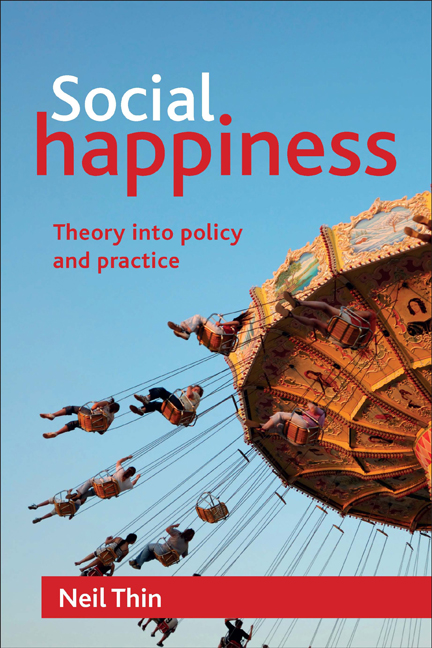six - Governance and responsibility: towards the eudaimonic state?
Published online by Cambridge University Press: 01 September 2022
Summary
Worldwide, governments of rich and poor countries alike have been showing dramatically increased interest in monitoring national levels of self-reported happiness. This is a major shift from previous positions whereby governments and parastatals in richer countries saw their roles primarily in terms of ensuring law and order, facilitating economic growth, and remedying the pathological sources of psychological suffering, particularly among the poor and marginalised. This latter role has been known by sceptics as that of the ‘nanny state’ (Harsanyi, 2007) or ‘therapeutic state’ (Polsky, 1991). Note that these terms, which on the face of it refer to the not unreasonable idea that states might want to look after the well-being of their less fortunate citizens, are almost invariably used as terms of abuse. Now it seems that many governments want to move beyond therapeutic into eudaimonic roles, facilitating happiness rather than just minimalising suffering. Is this a clear sign that they want to use this information as a guide for policy and practice, and that they recognise their responsibility to do so? In the UK, a BBC survey in 2006 found that 81% of people thought the government should see happiness, not GDP, as its main objective (Easton, 2006).
Bhutan remains the only country in the world to have chosen ‘Gross National Happinesss’ (GNH) as the overarching policy objective (see www.bhutanstudies.org.bt). Although lots of political leaders, government bureaucracies, and business leaders worldwide have insisted on the importance of measuring happiness in order to balance so-called ‘economic’ indicators with attention to people's reported experiences, few have even dabbled with the idea of spelling out the kind of difference that this might make to policies. Even in Bhutan, the GNH idea has until recently had mainly rhetorical status, with little systematic attempt to back it up with distinctively happiness-promoting strategies. Bhutan's government has in practice put much more emphasis on economic growth than on happiness, achieving (albeit from a low base) some of the world's highest growth rates in recent years. It seems almost certain that recent major improvements in Bhutanese happiness, health, and longevity are largely due to the economic growth induced by liberalisation policies.
- Type
- Chapter
- Information
- Social HappinessTheory into Policy and Practice, pp. 81 - 90Publisher: Bristol University PressPrint publication year: 2012



